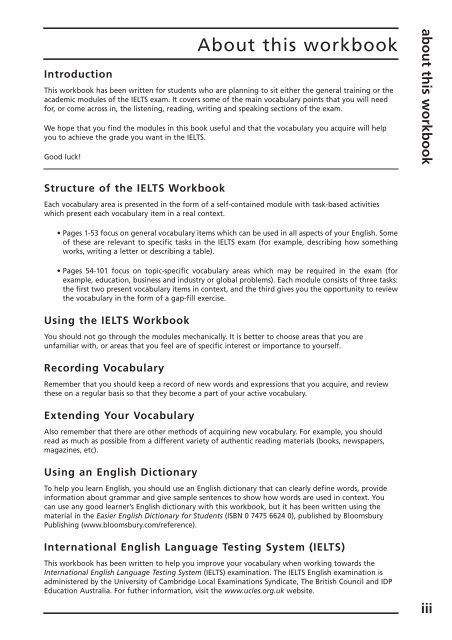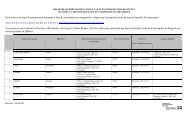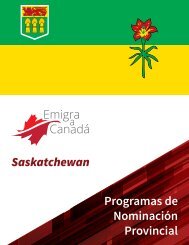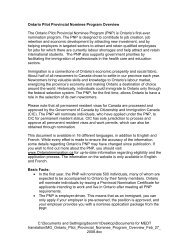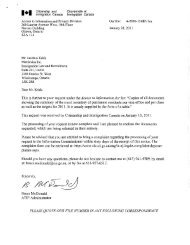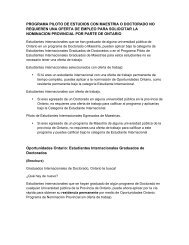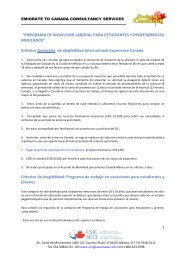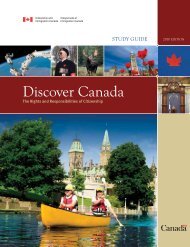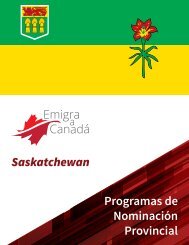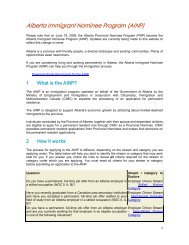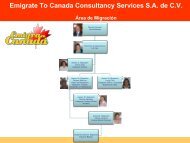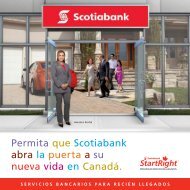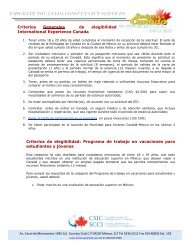CHECK YOUR ENGLISH VOCABULARY FOR IELTS - Emigra a
CHECK YOUR ENGLISH VOCABULARY FOR IELTS - Emigra a
CHECK YOUR ENGLISH VOCABULARY FOR IELTS - Emigra a
Create successful ePaper yourself
Turn your PDF publications into a flip-book with our unique Google optimized e-Paper software.
Introduction<br />
About this workbook<br />
This workbook has been written for students who are planning to sit either the general training or the<br />
academic modules of the <strong>IELTS</strong> exam. It covers some of the main vocabulary points that you will need<br />
for, or come across in, the listening, reading, writing and speaking sections of the exam.<br />
We hope that you find the modules in this book useful and that the vocabulary you acquire will help<br />
you to achieve the grade you want in the <strong>IELTS</strong>.<br />
Good luck!<br />
about this workbook<br />
Structure of the <strong>IELTS</strong> Workbook<br />
Each vocabulary area is presented in the form of a self-contained module with task-based activities<br />
which present each vocabulary item in a real context.<br />
• Pages 1-53 focus on general vocabulary items which can be used in all aspects of your English. Some<br />
of these are relevant to specific tasks in the <strong>IELTS</strong> exam (for example, describing how something<br />
works, writing a letter or describing a table).<br />
• Pages 54-101 focus on topic-specific vocabulary areas which may be required in the exam (for<br />
example, education, business and industry or global problems). Each module consists of three tasks:<br />
the first two present vocabulary items in context, and the third gives you the opportunity to review<br />
the vocabulary in the form of a gap-fill exercise.<br />
Using the <strong>IELTS</strong> Workbook<br />
You should not go through the modules mechanically. It is better to choose areas that you are<br />
unfamiliar with, or areas that you feel are of specific interest or importance to yourself.<br />
Recording Vocabulary<br />
Remember that you should keep a record of new words and expressions that you acquire, and review<br />
these on a regular basis so that they become a part of your active vocabulary.<br />
Extending Your Vocabulary<br />
Also remember that there are other methods of acquiring new vocabulary. For example, you should<br />
read as much as possible from a different variety of authentic reading materials (books, newspapers,<br />
magazines, etc).<br />
Using an English Dictionary<br />
To help you learn English, you should use an English dictionary that can clearly define words, provide<br />
information about grammar and give sample sentences to show how words are used in context. You<br />
can use any good learner’s English dictionary with this workbook, but it has been written using the<br />
material in the Easier English Dictionary for Students (ISBN 0 7475 6624 0), published by Bloomsbury<br />
Publishing (www.bloomsbury.com/reference).<br />
International English Language Testing System (<strong>IELTS</strong>)<br />
This workbook has been written to help you improve your vocabulary when working towards the<br />
International English Language Testing System (<strong>IELTS</strong>) examination. The <strong>IELTS</strong> English examination is<br />
administered by the University of Cambridge Local Examinations Syndicate, The British Council and IDP<br />
Education Australia. For futher information, visit the www.ucles.org.uk website.<br />
iii


